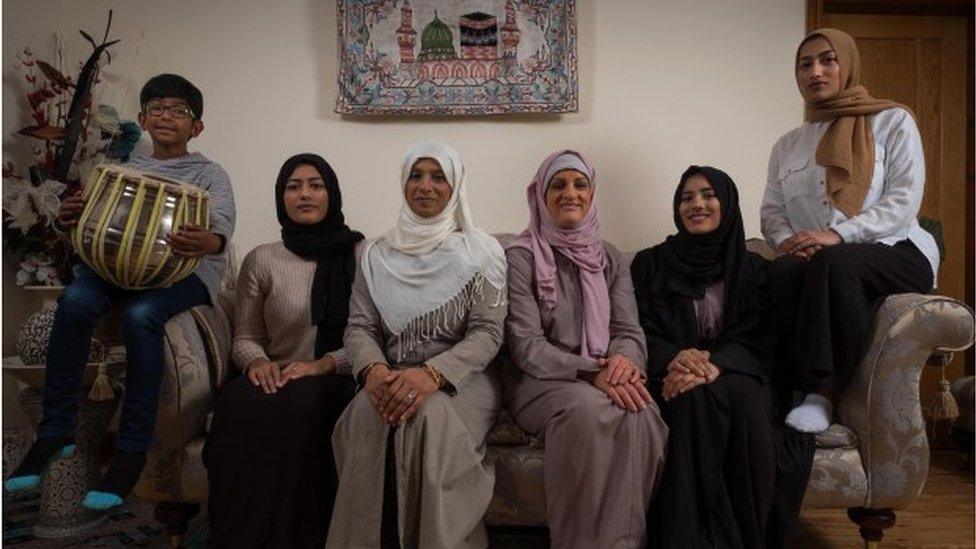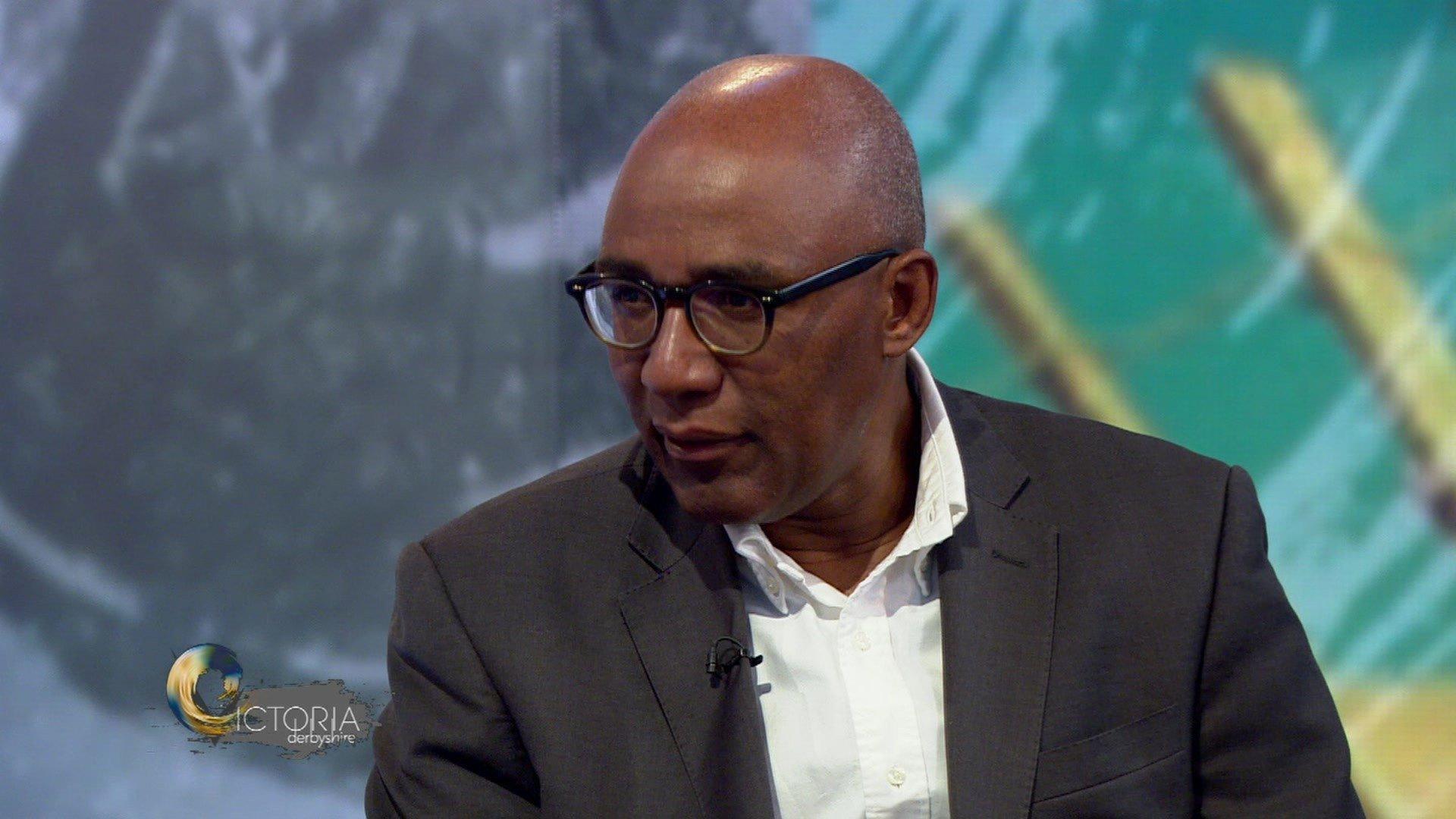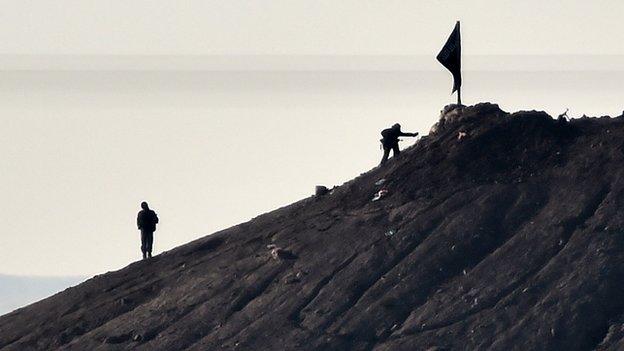Channel 4 show about Muslims accused of 'brownface'
- Published

My Week as a Muslim follows a family in Manchester
Channel 4 is facing criticism for dressing a white woman as a Pakistani Muslim for a new documentary.
My Week as a Muslim sees her integrated into a Manchester family after May's terrorist attack in the city.
Katie Freeman, an NHS healthcare assistant with professed anti-Muslim views, is made-over with prosthetics, brown skin and a hijab.
Fozia Khan, the show's producer, said it was designed to show what it's like to be a Muslim in Britain.
"The programme allowed Katie to meaningfully walk in the shoes of someone from a different background," she said.
According to Khan, it enabled Freeman "to experience what it is like to be part of the British Pakistani Muslim community rather than observe it as an outsider."
My Week as a Muslim has yet to be broadcast, but a trailer, external was released this week.
Freeman spent the week with the family of British-Pakistani Saima Alvi, a teacher and mother of five.
It shows the Manchester family dealing with everyday life immediately after the terrorist attack at the Manchester Arena, in which 22 people were killed.
Social media users have criticised it for using 'brownface' and have asked why the documentary couldn't show a Muslim family without involving a white woman.
Allow X content?
This article contains content provided by X. We ask for your permission before anything is loaded, as they may be using cookies and other technologies. You may want to read X’s cookie policy, external and privacy policy, external before accepting. To view this content choose ‘accept and continue’.
Allow X content?
This article contains content provided by X. We ask for your permission before anything is loaded, as they may be using cookies and other technologies. You may want to read X’s cookie policy, external and privacy policy, external before accepting. To view this content choose ‘accept and continue’.
The Muslim Council of Britain told the BBC that they would "not have advised" the use of 'brownface' and said it was not surprising it had "caused deep offence amongst some communities".
Yet the organisation did appreciate the show's broader aims "to better understand the reality of Islamophobia which has become socially accepted across broader society."

Follow us on Facebook, external, on Twitter @BBCNewsEnts, external, or on Instagram at bbcnewsents, external. If you have a story suggestion email entertainment.news@bbc.co.uk.
- Published11 April 2016

- Published22 October 2014
